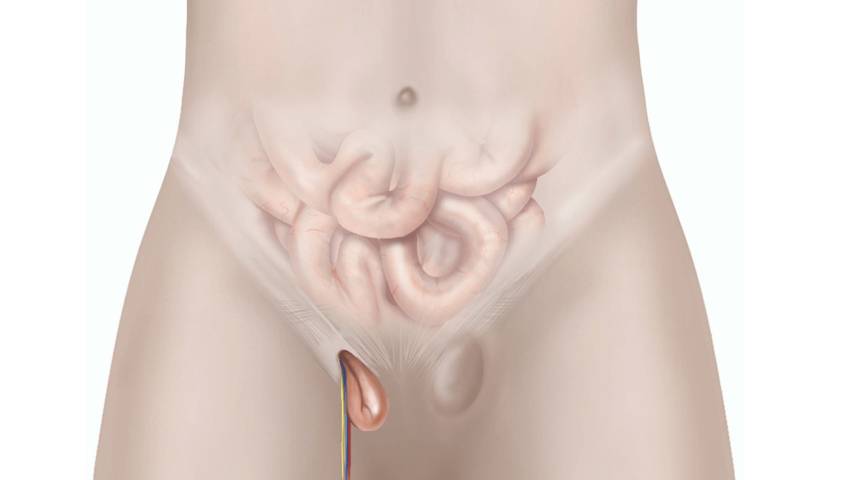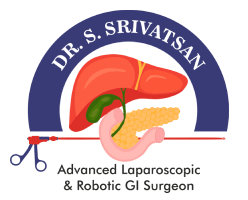
- 16/01/2024
- Dr. Srivatsan Gurumurthy
- 0 Comments
- Blog
Different Types of Hernia And Its Causes And Treatment
You would have heard of a hernia several times in your life? Or are you struggling with a bulge in your abdomen or groin? It could be a hernia and wondering what it is and how to treat it. Dr. Srivatsan Gurumurthy is one of the best Hernia specialists at GEM Hospital Chennai and has more than 12+ years of experience in treating simple and complex hernias. Also, he is certified as a console surgeon in the Da Vinci Si system for performing Robotic hernia surgeries. If you are living in Chennai or nearby areas and looking for hernia repair or surgery then you must consult Dr. Srivatsan Gurumurthy at GEM Hospital Perungudi, Chennai, or SS Surgical Clinic Mylapore, Chennai. In this blog post, Dr. Srivatsan Gurumurthy will explore various types of hernias, their causes, and the effective treatment options available.
Let’s See
What Is Hernia?
A hernia happens when fat, tissue, or part of an organ pushes through a weak spot or hole in the abdominal muscle or connective tissue. Depending on the type of hernia you have and how severe it is, the condition can range from slightly bothersome to life-threatening.
Types of Hernia:
Many different types of hernia can affect adults and children. These are 5 of the most common types:
- Inguinal Hernia: Inguinal Hernia The most frequent type of hernia occurs in the groin area. Picture a section of your digestive system attempting to protrude through an opening near your hip bone. However, it’s judicious to seek a medical examination, If you smell any bulging or discomfort in that region.
- Femoral Hernia: A femoral hernia is a kind of hernia that happens in the femoral channel, which is the corridor close to the upper ham and crotch. Hernias, by and large, is the point at which an organ or towel pushes through a point of weakness or opening in the bracing muscle or connective towel.
- Hiatal Hernia: This type happens when a piece of the stomach misses through the stomach into the chest opening. Hiatal hernias are continually associated with gastroesophageal reflux disease (GERD), which can bring assistant effects like heartburn or trouble swallowing.
- Umbilical Hernia: If you notice an irregularity or pocket near your navel, it might be an umbilical hernia. This happens when the stomach-related framework or stomach tissue pushes through crippled muscles around the belly button.
- Incisional Hernia: Making at the site of a past stomach operation, incisional hernias incorporate tissue pushing through the incapacitated scar or cut locale. If you’ve had a stomach operation and notice any remarkable expansion, it’s principal to chat with clinical benefits capable of genuine evaluation and heading.
Symptoms of Hernia:
You might not have symptoms, depending on the type of hernia you have. One common sign of a hernia is the visible bulge in the affected area. other symptoms include:
- Pain
- Nausea
- Vomiting
- Obstipation (absence of flatus or bowel motions)
When do you need Hernia Treatment?
Dr. Srivatsan Gurumurthy may decide to operate on you if you have the following conditions:
- The hernia causes pain and discomfort or when it is growing bigger.
- The portion of your bowel gets trapped in the abdominal wall and cannot be pushed back (incarcerated) to cause nausea, vomiting, and a painful lump in the groin.
- When the hernia becomes strangulated (bulged tissue loses the blood supply), a medical emergency requires immediate surgical intervention, or else it causes infection or death.
What causes a Hernia?
The various types of hernias can have different causes. In general, a hernia starts with pressure on an organ or your intestines. A hernia forms when this pressure happens in the same area as a weakened muscle or tissue. Some people are born with weak muscles or tissue that isn’t fully developed. However, most people get hernias as their bodies age and their muscles weaken.
You also can get a hernia, or worsen an existing one, from certain movements and habits. These include:
- Picking up heavy objects (especially lifting them in the wrong way and with weak muscles)
- Overusing the same muscle
- Straining during coughing, sneezing, diarrhea, or constipation
- Being overweight or having poor nutrition
- Using tobacco
Treatment of Hernia:
Several surgical hernia repair options are available. But, according to a person’s clinical condition and the type and location of the hernia, Dr. Srivatsan customizes his approach to treatment based on the specific type, location, and size of the hernia.
- Open Hernia Repair: This procedure involves carefully placed incisions precisely at the hernia site. Subsequently, the protruding tissue is gently repositioned to its original location, and the abdominal lining is frequently reinforced employing either mesh or sutures.
- Laparoscopic Surgery: In the realm of minimally invasive hernia surgery, a key technique involves the precise insertion of a slender tube equipped with a camera, known as a laparoscope, along with specialized surgical instruments. These instruments are introduced through small incisions. Dr. S. Srivatsan Gurumurthy skilled surgeon utilizes this advanced technology to expertly address hernias, all while closely monitoring the procedure on a high-definition screen for optimal precision and effectiveness.
- Robotic Surgery: Robotic hernia repair stands at the forefront of hernia treatment, harnessing the power of advanced robotic technology to provide precise and minimally invasive solutions. This innovative approach has gained significant traction due to its numerous advantages when compared to conventional techniques.
If you notice an abnormal lump or a bulge at the groin area, or if you suspect you have hernia, it is recommended to consult a doctor to evaluate your condition and advise on your treatment options.
